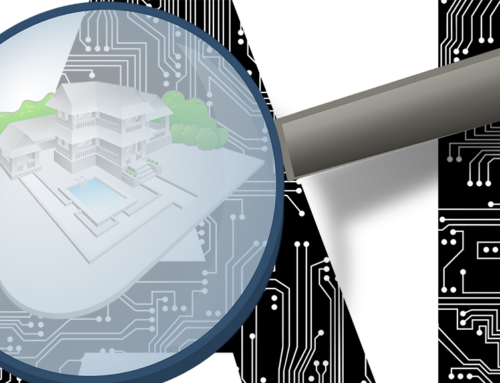 There is great leadership thought around the possibilities that may exist for real estate widgets or apps. Very small teams of developers may be able to invent fantastic software that fills a diverse set of niche needs across the real estate industry. One cannot help but to be amazed at the explosion of applications for the iPhone or the Android or other mobile devices. Bringing that type of creativity to the Million-strong real estate community is very viable. Real Estate has the benefit of the economy of numbers – outpacing any other industry beyond teachers (who do not buy anything). Real Estate development is investment worthy because there is $2B to $6B in revenue moving from REALTORS® to the companies that serve them.
There is great leadership thought around the possibilities that may exist for real estate widgets or apps. Very small teams of developers may be able to invent fantastic software that fills a diverse set of niche needs across the real estate industry. One cannot help but to be amazed at the explosion of applications for the iPhone or the Android or other mobile devices. Bringing that type of creativity to the Million-strong real estate community is very viable. Real Estate has the benefit of the economy of numbers – outpacing any other industry beyond teachers (who do not buy anything). Real Estate development is investment worthy because there is $2B to $6B in revenue moving from REALTORS® to the companies that serve them.
Contrast this open product universe with the perceived monopolies of our industry today. There are only about 20 companies offering fewer than 100 products that service 90% of the software needs of the industry today. For each of these companies, its cost more than $1 million to launch a new product into the industry, sometimes many millions more. If the product is a real estate consumer product, the development investment may easily reach $50M or more when you combine the marketing costs. Trulia and Zillow have each burned through more than that. An app like Nudge can be developed easily for less than $250,000. Perhaps far less investment.
Here is the rub…
Have you ever noticed what happens when you put an app on your iPhone? Do you know whom you are doing business with? Have you considered what that company could do with your data? How about the data of all of your contacts on your phone, or contacts in your social networks? Do you trust that company to “protect” you and your information? Do you care?
Think for a moment about the “private and confidential” data that REALTORS® and the MLS handle. In a way, today’s group of monopoly providers protects everyone. They have too much at risk to abuse their customer, and sell data out the back door. If they get caught, millions goes away. But the little app developer only risks a fraction of that – so their risk tolerance is far lower, and the risk to the REALTOR® using the app or widget is much higher.
Help Me!
Ever call for support on an app that you downloaded to your phone? You haven’t because these companies do not offer support. Some will give you an email address that gives you the prayer-like hope that someone out there is listening to you. You may get an auto-responder, or sometimes be issued a help ticket number. You are more likely to be invited to visit a help-wiki or a poorly constructed help page that has not been updated to reflect the current version of the product that you have.
Kudos to Apple and Spark
I must submit a kudo to Apple. They do look at the code submitted to the app store, albeit usually a mechanical look using bug checking software. Your data is mostly protected unless you create a username or password, or worse yet, use the Facebook or Twitter Single Sign on solutions that expose you and your friends to all kinds of nefarious attacks.
In the same light, I would advance that FBS is likely to pay close attention to software developed for the SPARK platform – the first app store for real estate. There has been no word about their selection process for apps that go into the store. No mention of bonding requirements that insure Spark users or data providers. I expect that these things will come in time. My hope is that they come before there is a problem rather than after. FBS has invested much in this framework for the advancement of software in our industry. As the retailer, they are also taking on all of the liabilities for the software they resell. I admire the emblazoned passion. If they execute effectively, they will bring a great gift to our industry.
It is no wonder that neither CoreLogic or LPS have opened up the widget gallery in Fusion or reInsight to third party developers. There is a lot of risk, not to mention the de facto help-desk burden. If the widget has a problem, I can guarantee you that the MLS software provider is the one who will get the call, not the widget developer. If the widget fails and there is data loss, there would be real consequences.
These are the perplexing risks that impact innovation in real estate. These risks must be embraced rather than ignored. Solutions must be advanced that will help overcome these real concerns. Our industry is strong. It can be done.




